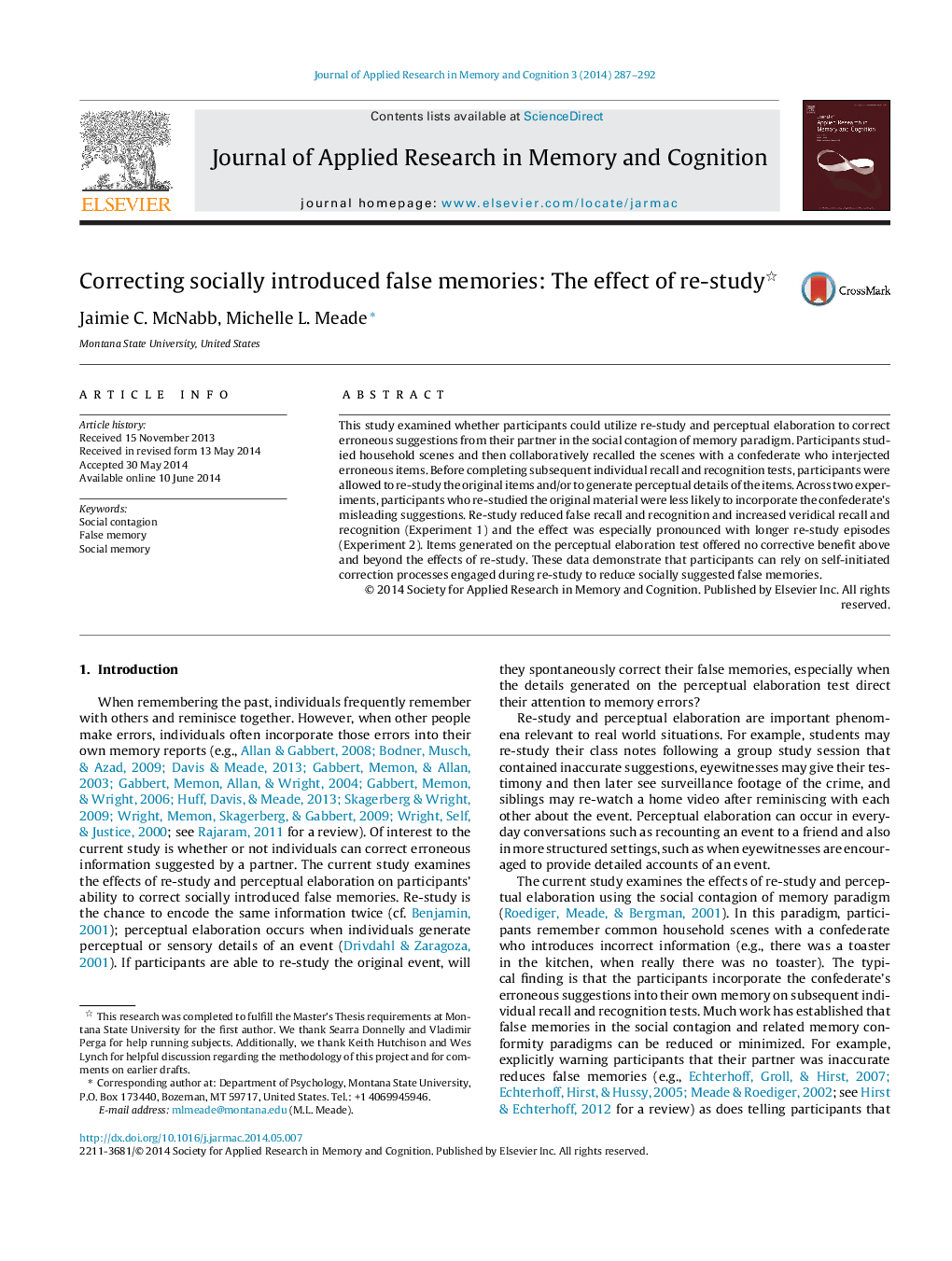| Article ID | Journal | Published Year | Pages | File Type |
|---|---|---|---|---|
| 881678 | Journal of Applied Research in Memory and Cognition | 2014 | 6 Pages |
This study examined whether participants could utilize re-study and perceptual elaboration to correct erroneous suggestions from their partner in the social contagion of memory paradigm. Participants studied household scenes and then collaboratively recalled the scenes with a confederate who interjected erroneous items. Before completing subsequent individual recall and recognition tests, participants were allowed to re-study the original items and/or to generate perceptual details of the items. Across two experiments, participants who re-studied the original material were less likely to incorporate the confederate's misleading suggestions. Re-study reduced false recall and recognition and increased veridical recall and recognition (Experiment 1) and the effect was especially pronounced with longer re-study episodes (Experiment 2). Items generated on the perceptual elaboration test offered no corrective benefit above and beyond the effects of re-study. These data demonstrate that participants can rely on self-initiated correction processes engaged during re-study to reduce socially suggested false memories.
